Safe Third Countries, Rwanda and a Channel deal
- Rwanda, UNHCR and refugees
- The UK-Rwanda Memorandum
- A most confusing concept: “externalisation”
- Save Third Countries – UNHCR vs. the Court
- Where UNHCR convinced the Court
- “Stop the boats”
- A Channel Plan
Dear friends of ESI,
Please find the latest ESI Report here:
A wise court
Rwanda, Safe Third Countries and
a Channel breakthrough in 2023
30 June 2023
On 29 June 2023, the UK Court of Appeal issued a historic decision with implications for the future of the global refugee system, the future of asylum and the safe third countries principle.
It addressed two questions: Is the basic principle of the April 2022 UK-Rwanda agreement, to transfer asylum-seekers to Rwanda and thereby reduce irregular migration to the UK, in accordance with international law? And: Is Rwanda a safe third country today?
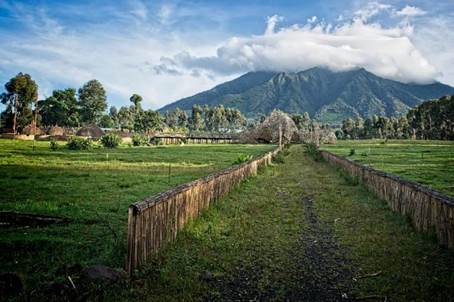
Rwanda
With its answers – “Yes” to the first question, “Not Yet” to the second – the court shows a way how the UK and other European governments might combine migration control through migration diplomacy with respect for the Refugee Convention and the European Convention on Human Rights. If governments and the UNHCR take these ideas on board, this June 2023 judgement could be a turning point for the international refugee system.
Rwanda, UNHCR and refugees
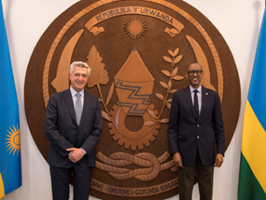
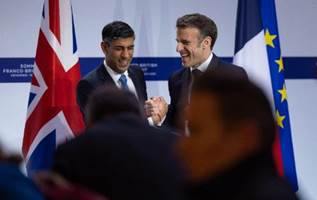
UNHCR in Rwanda – Sunak and Macron
Rwanda, a hilly, landlocked country in the Great Lakes region of Central Africa, has a population of just over 13 million people. Located in a region of many armed conflicts, Rwanda has long been a host country to refugees.
In 1980, Rwanda ratified the Geneva Refugee Convention. In 2014, it adopted an asylum law. In 2016, it established a National Refugee Status Determination Committee to decide on asylum applications. A UNHCR factsheet, published in December 2022, notes that 82 percent of all refugees in Rwanda have ID cards. 94 percent of refugee children are enrolled in primary and 43 percent in secondary schools. In 2023 UNHCR wrote that “Rwanda generally provides a favourable protection environment.”
Recently, UNHCR cooperation with Rwanda has intensified. This followed a November 2017 CNN report on slave auctions in Libya that shocked the world.
In 2017, Rwanda offered to host some of those in need of a safe place. On 24 November 2017, the foreign ministry declared: “Our door is wide open … to ensure that we can provide minimum comfort to those in need. Given Rwanda’s political philosophy and our own history, we cannot remain silent when human beings are being mistreated and auctioned off like cattle.” The Rwandan foreign minister then estimated that her country could take in some 30,000 people from Libya.
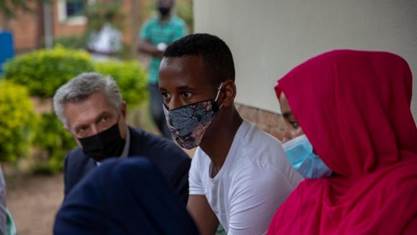
UNHCR: Grandi praises Rwanda for offering life-saving haven for refugees (April 2021)
In September 2019, Rwanda and UNHCR set up an “Emergency Transit Mechanism” from Libya. It provided for asylum seekers chosen by UNHCR to be transferred directly to a specially refurbished centre in Rwanda, where they could apply for protection. UNHCR would establish who needed protection, something the organisation has done worldwide for decades. A positive decision could then be followed by resettlement to another country. The total number of people brought to Rwanda by the end of February 2023 stood at 1,453; 932 of whom had by then already been resettled to other countries. UNHCR was full of praise for this cooperation. In April 2021, High Commissioner Filippo Grandi expressed his gratitude:
“I really want to particularly thank the Government of Rwanda. It was President Kagame’s initiative … we will continue to need this mechanism as long as the situation in Libya continues to be as difficult as it is now.”
The UK-Rwanda Memorandum
On 14 April 2022, the UK-Rwandan “Migration and Economic Development Partnership” was presented in the capital Kigali. The UK government announced it would be possible “within weeks or months” to send some of those who arrived irregularly from the European Union across the Channel to Rwanda for the processing of their asylum claims.
Rwandan politicians welcomed this. They presented this plan as a model for others, as offering African solutions to global problems. On 14 April, Rwanda’s foreign minister declared in Kigali:
“We believe this partnership with the UK offers a unique and innovative approach that will provide a safe haven and opportunities for those in need. And is the first crucial step towards a more effective and humane global migration system.”
The arrangement is demanding. Rwanda pledges to process asylum claims “in accordance with Rwanda domestic law, the Refugee Convention, current international standards, including in accordance with international human rights law.” Assurances include that claims will be processed fairly, with interpreters and legal assistance.
Rwanda commits to providing “adequate” reception conditions; guaranteeing asylum seekers freedom of movement “at all times”; and ensuring their health, security and wellbeing. Those granted protection are to be provided with support to integrate into Rwandan society. The UK commits to pay all associated costs.
In parallel, the UK established an “Economic Transformation and Integration Fund” for Rwanda, to which it already transferred “an initial” £120 million. The UK also commits to resettling “a portion of Rwanda’s most vulnerable refugees in the United Kingdom.”
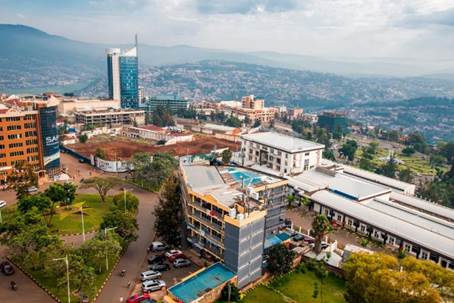
Kigali
A most confusing concept: “externalisation”
UNHCR strongly opposed the UK-Rwanda cooperation from the very beginning. On 14 April 2022, the day the UK-Rwanda cooperation was announced, UNHCR reminded the UK government that UNHCR:
“… does not support the externalisation of asylum states’ obligations. This includes measures taken by states to transfer asylum seekers and refugees to other countries, with insufficient safeguards to protect their rights, or where this leads to the shifting rather than the sharing of responsibilities to protect refugees.”
UNHCR made two separate claims here.
The first is that transfers to a safe third country are problematic when there are insufficient safeguards. This is the whole idea behind the concept of a safe third country: only if a country is actually safe and has safeguards for those to be transferred there is such a transfer legal.
The second claim is that transfers to a safe third country are also illegal “where this leads to the shifting rather than the sharing of responsibilities.”This suggests that transfers to Rwanda are wrong even when the necessary safeguards are in place.
On 27 April 2022, Filippo Grandi, the High Commissioner for Refugees, expressed this view again, stating his opposition to the UK’s intentions, as “such efforts to shift responsibility run counter to the letter and spirit of the Refugee Convention.”
But is this true?
The answer, given by five judges in two successive UK Court decisions, one by the High Court in December 2022 and the other by the High Court of Appeal this week, is clear: no. Transfers to a safe third country are not per se a violation of international law or of human rights. On this central point, UNHCR is mistaken.
Save Third Countries – UNHCR vs. the Court
On 14 June, only hours before the first plane was due to take off in the UK, the European Court of Human Rights in Strasbourg issued an interim order. It stated that the applicants “should not be removed until the expiry of a period of three weeks following the delivery of the final domestic decision in the ongoing judicial review proceedings” on the legality of the policy.
On 19 December 2022, the UK High Court found that transfers to Rwanda under the UK-Rwanda Memorandum were lawful and did not violate the Refugee Convention, the European Convention on Human Rights, or UK law.
The decision was appealed. Once again, no flights departed, awaiting this week’s judgement by the UK Court of Appeal.
The judges of the UK High Court ruled on 19 December 2022 on whether “the Refugee Convention imposes an obligation on contracting states to determine all asylum claims made, on their merits”, only to dismiss it: “We disagree. There is no such obligation on the face of the Convention.”
What about UNHCR’s claim that “externalisation” violates the spirit of international refugee law? The High Court’s answer was equally clear:
“Again, we disagree … An obligation to determine every asylum claim on its merits would be a significant addition to the Refugee Convention.”
There is nothing in the Refugee Convention that opposes transferring asylum seekers to a safe third country. International law establishes an obligation on states not to violate article 33 of the Refugee Convention. In fact, all UK judges who examined this issue disagreed with UNHCR’s claim that “externalisation” is per se illegal.
This should not come as a surprise.
Not so long ago even UNHCR disagreed with its current position. In 2011, an Australian Labor government proposed an agreement with Malaysia to stop irregular arrivals across the Ocean. Malaysia would take back boat people from Australia and provide them with asylum procedures conducted in Malaysia by UNHCR. In return, Australia would take in a larger number of people in need of protection directly from Malaysia. This would simultaneously stop boats, save lives at sea and promote legal resettlement without seeking to deter asylum seekers through poor treatment.
On 25 July 2011, UNHCR welcomed this agreement:
“UNHCR hopes that over time the agreement will lead to more protection in both countries and the region as a whole. It also welcomes the fact that another 4,000 refugees from Malaysia will be given a durable solution through resettlement in Australia. The potential to work towards safe and humane options beyond dangerous boat journeys is also a positive aspect of this agreement.”
Today, in its public communication, however, UNHCR continues to present “externalisation” as unlawful.
Where UNHCR convinced the Court
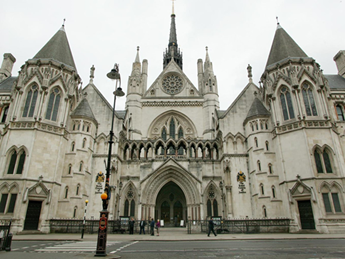
UK Court of Appeal
There is nothing wrong in principle with the idea of reducing dangerous irregular migration through transfers to a safe third country. However, there is a crucial caveat. Such transfers are only legal and legitimate if, as UNHCR regularly points out, “procedural and substantive safeguards are fully guaranteed.”
On this point, the June 2023 Court of Appeal judgement overturned the assessment of the High Court from last December. It did so in a split judgement (2-1), with the majority concluding that, as a matter of fact, at this moment, Rwanda is not a safe third country.
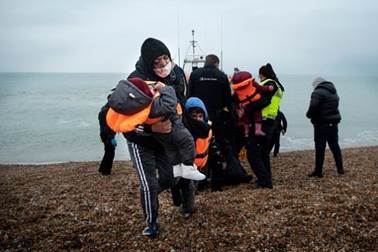
November 2021: a deadly accident in the Channel, with dozens of irregular migrants drowning, while trying to cross from France to the UK in small boats
“Stop the boats”
The numbers are remarkable, and they have been growing fast. In 2018, less than 300 irregular migrants crossed the Channel from France to the United Kingdom (UK). In 2022, it was 46,000.
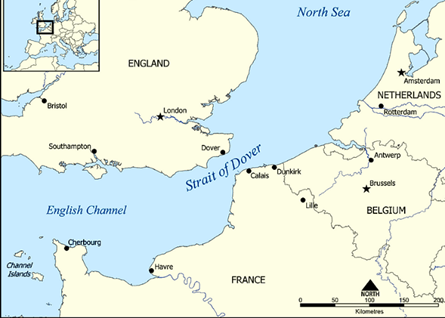
The Channel
Behind these numbers lies a wild reality. Caught in between, there are people like Maryam Nuri Mohamed Amin, a 24-year-old from a peaceful town in Northern Iraq, who put her life into the hands of smugglers one early morning in November 2021, and who drowned in the freezing water.
In August 2022, almost 1,300 people crossed the Channel in a single day. In 2022, more people crossed the Channel to get to the UK than crossed the Atlantic and the Western Mediterranean to get to Spain from Africa.
A Channel Plan
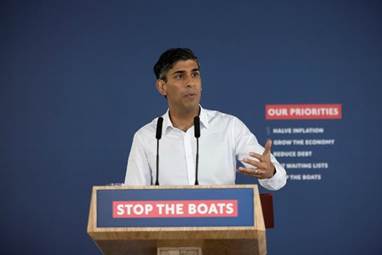
Prime Minister Rishi Sunak giving a press conference in Dover,
5 June, 2023
|
A Channel 40,000 Plan The aim is to restore control and save lives, while fully respecting the European Convention on Human Rights. We propose immediate negotiations between the United Kingdom, France, Germany and other interested EU-member states to bring about migration cooperation in the Channel, based on the following steps:
|
What is needed now are concrete steps that will not just reduce but stop these crossings. The obvious alternative policy to stop irregular Channel crossing – humanely, lawfully and without transfers to Rwanda – is to return everyone arriving after an agreed cut-off date to countries which are, without any doubt, safe already, for anyone seeking protection.
Currently the EU is responding to irregular migration to the UK the way Turkey responds to irregular migration from it to the EU: no legal returns of those who cross the water have been possible. For this to change, France, Germany, and others forming a coalition of the willing would need to offer to the UK that they - not Rwanda – will take everyone back who crosses the Channel, as soon as the UK has processed them in line with its laws.
The UK in turn should agree to resettle refugees or asylum seekers, who are now in the European partner countries, through legal ways. If the UK were to offer to take 40,000 people a year for three years, this would be real solidarity with France, Germany or the Netherlands.
Why 40,000? Last year, Germany granted protection to more than 128,000 people. Austria (population 9 million) to more than 17,000. In 2022, France had 150,000 asylum applications and granted 50,000 people international protection, including decisions on appeal and resettlement. The UK had 90,000 asylum applications and gave 25,000 people some form of protection, including decisions on appeal and resettlement (all excluding Ukrainian refugees).
For the UK, such cooperation would bring back control. And the commitment to resettle would ensure a continued interest on the other side of the channel in cooperation.
And Rwanda? It can still be an African pioneer, providing African solutions, as it has been in its cooperation with UNHCR to help asylum seekers stranded in Libya. For this it also deserves support. But being truly safe will take more than political declarations. It takes access to a functioning asylum system. Then it will also be possible to persuade European judges. Just not yet.
Sincere regards,

Gerald Knaus
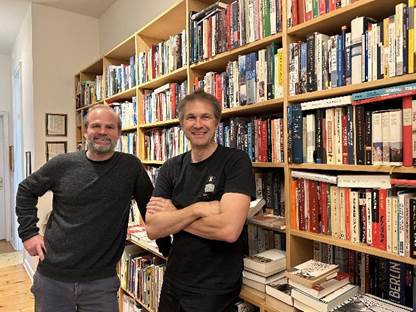
With ESI Senior Fellow John Dalhuisen,
working on humane borders in Berlin
The European Stability Initiative is being supported by Stiftung Mercator
Further reading on asylum and borders
ESI report: Olga in Paris – Why are there so few Ukrainian refugees in France? (14 February 2023)
In German: Olga in Paris – Warum so wenige ukrainische Flüchtlinge nach Frankreich gehen
In French: Olga à Paris – Pourquoi y-a-t-il si peu de réfugiés ukrainiens en France ?
ESI newsletter: Putin’s Cholodomor – Homes for Ukrainians – A plan for winter (29 December 2022)
Essay 1 – The promise and the agony – saving the refugee convention
Why International protection is at risk – Myths and facts on global asylum
Swiss tragedy – borders and refoulement (From book: Which Borders do we need?)
Essay 2 – The popularity of pushbacks – lessons from Australia
The Damned of Papua New Guinea (From book: Which Borders do we need?)
Essay 3 – Our Plan for the Aegean (From book: Which Borders do we need?)
ESI newsletter: The Gambia Plan – Beyond empty words and threats: how a breakthrough is possible (17 February 2020)
ESI newsletter: Gambia Plan – win-win with Africa – the 11th commandment (29 July 2019)
ESI Report: The Aegean Tragedy – Key facts and key steps (24 January 2020)
ESI in the media
Der Spiegel, Europe’s New Asylum Policy: “The First Thing That They Do Is Imprison You”, 23 June 2023
France 24, Tragedy in the Mediterranean: Was the migrant boat disaster avoidable?, 15 June 2023
Deutsche Welle, Britain aims to reduce English Channel migration, 4 April 2023
BBC, Is the asylum system broken?, 18 March 2023
Prospect Magazine, What Europe can teach Britain about asylum, 1 March 2023
The Economist, The British government is planning another crackdown on asylum-seekers, 8 February 2023
